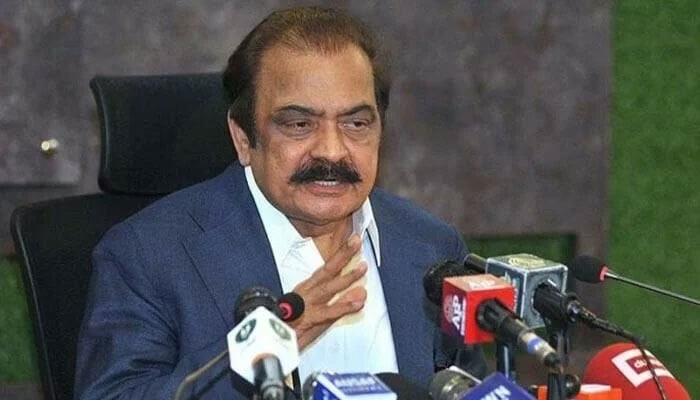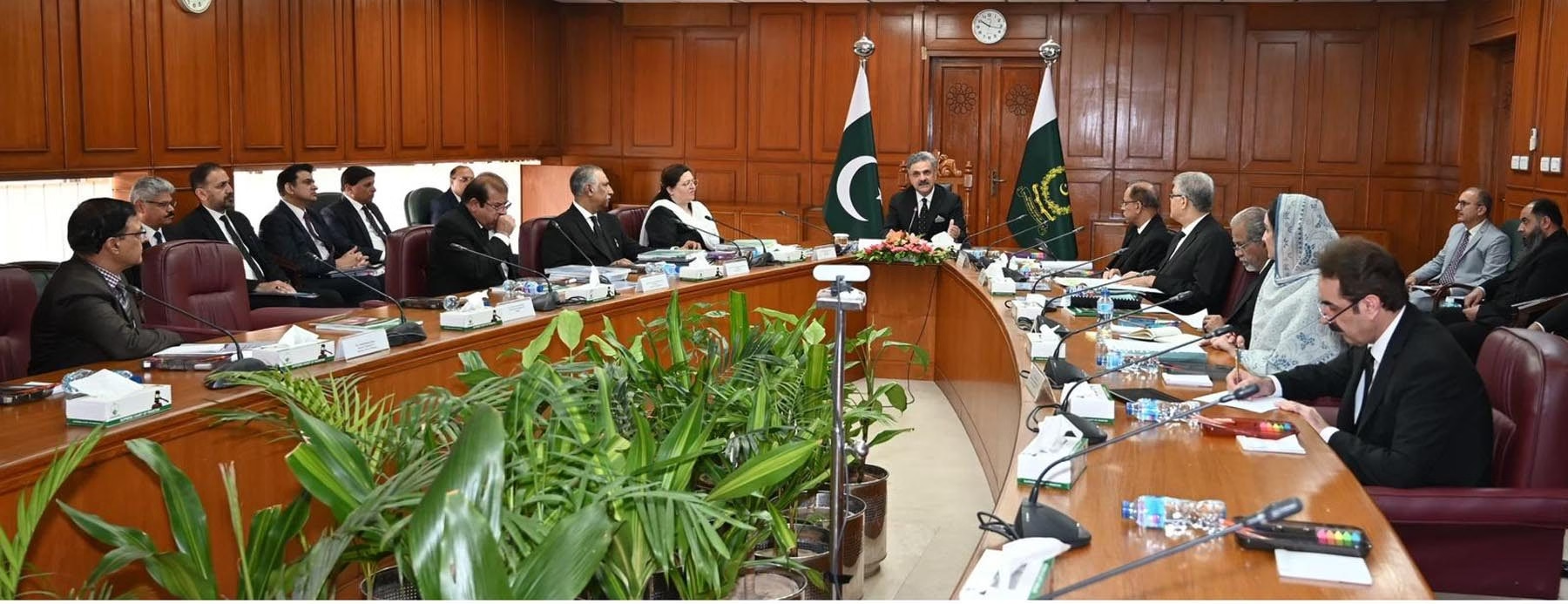Rana Sanaullah, Advisor to the Prime Minister on Political Affairs, has stirred the political landscape with his recent remarks about the potential release of PTI founder Imran Khan. Speaking on Geo News’ program Aaj Shahzeb Khanzada Kay Saath,he drew an intriguing parallel, suggesting that if the United States releases Aafia Siddiqui, Pakistan might consider reciprocating with decisions about Imran Khan. His comments delve into judicial independence, US-Pakistan relations, and the broader implications of international diplomacy.
Balancing Justice and Political Negotiations
During the interview, Rana Sanaullah emphasized the importance of working within Pakistan’s constitutional framework and legal systems. Addressing the ongoing trials against PTI founder Imran Khan, he stated:
If an accused is facing trial and is in judicial custody, how can the government intervene for their release? This is not something that can be decided outside the court’s jurisdiction.
He dismissed the idea of forming a judicial commission to review criminal cases, questioning the precedent it would set. Sanaullah noted that his party had also faced numerous cases but never sought such interventions.
US-Pakistan Relations: A Trade-Off Between Aafia Siddiqui and Shakeel Afridi?
Rana Sanaullah highlighted the long-standing tension between the US and Pakistan over individuals like Aafia Siddiqui and Shakeel Afridi. He recalled instances when the US pushed for Afridi’s release, labeling him a “hero” for aiding in the hunt for Osama bin Laden. Pakistan, in turn, countered by demanding the release of Aafia Siddiqui, a Pakistani neuroscientist imprisoned in the US.
“The US claimed they couldn’t release Aafia Siddiqui due to their judicial system, to which we responded that Shakeel Afridi has also been convicted by our courts,” Sanaullah explained.
By juxtaposing these cases, he underscored the complexities of sovereignty and mutual respect in international relations.
Talks with PTI: A Path Toward Resolution?
On the topic of ongoing talks with PTI, Sanaullah remarked that mutual dialogue is essential for resolving political conflicts. However, he clarified that both parties must operate within realistic boundaries, as it is impossible for either side to concede entirely to the other’s demands.
“We are open to dialogue and ready to set a time frame for negotiations. But it is essential to understand that decisions must align with the constitution and law,” he stated.
Sanaullah added that any negotiations initiated by the government were not influenced by external pressures, dismissing claims that international figures, such as Donald Trump, had any role in the process.
The Sovereignty Debate
Sanaullah was firm in his stance against foreign interference, reiterating that Pakistan’s sovereignty is non-negotiable. He expressed frustration over external influences, particularly through social media platforms like Twitter, where international leaders often make statements about domestic issues.
We will not act under pressure from tweets or statements. If there is interference, we will consider it a breach of our sovereignty,he said.
His remarks reflect the government’s commitment to maintaining independence in its domestic and foreign policies, even amidst challenging geopolitical dynamics.
Aafia Siddiqui’s Case: A Diplomatic Leverage?
Aafia Siddiqui’s imprisonment has been a sensitive issue in Pakistan, often used as a rallying point in discussions about US-Pakistan relations. Sanaullah suggested that raising her case could be a strategic move in negotiating terms with the US, especially when the country demands concessions on individuals like Imran Khan or Shakeel Afridi.
If the US releases Aafia Siddiqui, we can think about the PTI founder,he stated, tying the two issues together in a diplomatic balancing act.
Strengthening Pakistan-US Relations
When asked about the potential impact of a change in the US administration, Sanaullah expressed confidence in Pakistan’s ability to navigate diplomatic challenges. He acknowledged past tensions in bilateral relations but emphasized the need for a pragmatic approach that prioritizes national interests.
The Prime Minister has clearly stated that Pakistan will defend its sovereignty and national interests. Any cracks in our relationship with the US are counterproductive and must be addressed constructively,
Rana Sanaullah’s statements reveal a nuanced perspective on Pakistan’s political and diplomatic landscape. His call for respecting judicial independence, maintaining sovereignty, and engaging in meaningful dialogue reflects the challenges and opportunities facing the country.
As the political situation evolves, his remarks underscore the importance of balancing domestic stability with international diplomacy, all while safeguarding Pakistan’s constitutional and legal framework.



